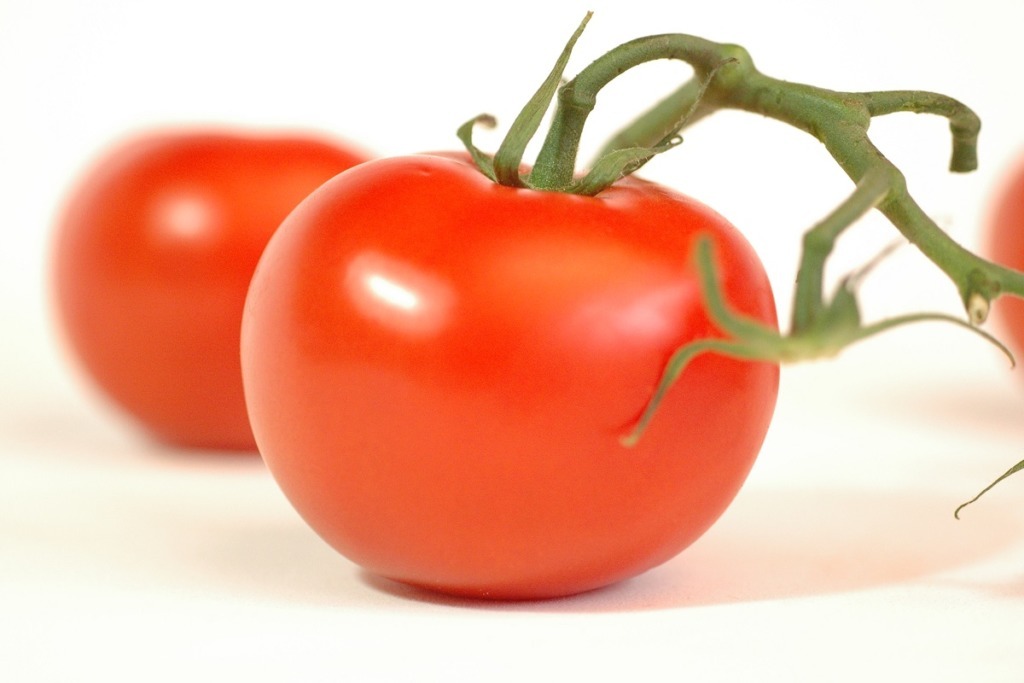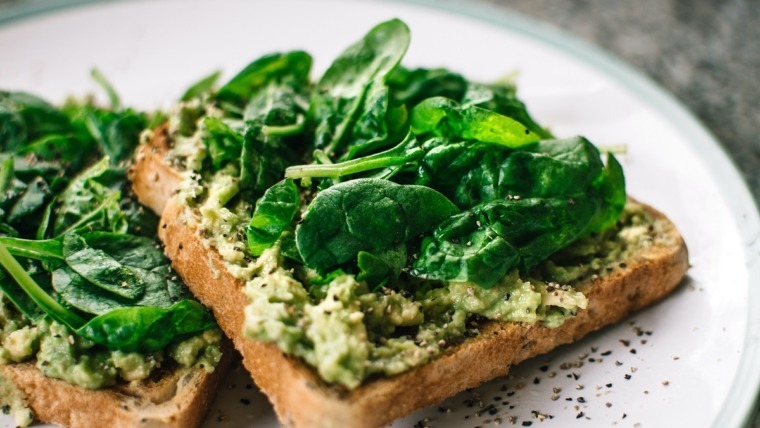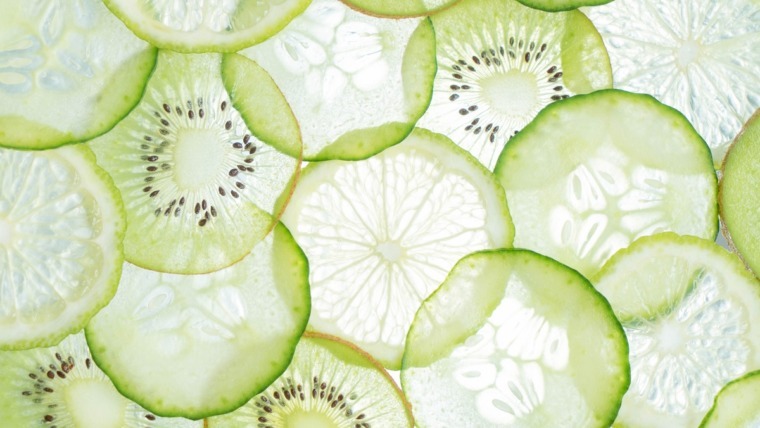
For a more balanced life
Written by Adriana Krueger
More balance in everyday life. Who would not want that? Whether it is due to poor nutrition, too little exercise or too much stress in work and everyday life, we are often unbalanced, tired and drained. That's enough of that! I will show you how you can bring more harmony into your life with organic food.
Organic food has been trendy for years. Almost every supermarket, every market stall and every hip cafe has organic products on offer. But what exactly is organic? And is organic food really better than conventional food?
What is organic food?
Organic food is food that comes from organic farming. Ecologically, this means, for example, that organic fruit and vegetables may not be genetically modified. Genetically modified plants not only threaten health, but also biodiversity and could have a negative impact on insect populations. So if you opt for products in organic quality, then you can be absolutely certain that genetic engineering has not been used in the manufacture of your product.
In addition, you have no “chemical clubs” such as pesticides and artificial fertilizers on and in your food. Pesticides are poisons that kill various organisms (fungi, rodents, snails, insects) and thus protect the plants from infestation. In this way, farmers want to improve the profitability of cultivation. At the same time, these agents can pose a risk to humans. Organic farmers do not use synthetic chemical pesticides on their fields. In practice this means that the organically produced products have not been sprayed with these poisons during cultivation.
Another advantage is the lack of preservatives. Conventional foods contain a variety of artificial preservatives and flavour enhancers. This is different with organic products. Only natural preservatives are used here. The result is a more natural taste of the food that is often perceived.
Organic animal products come from animals kept in a species-appropriate manner. As a rule, they should not be treated with antibiotics and hormones. There are exceptions, however, if the animal does not get well without other options. Animals that have been given antibiotics twice in their life are no longer considered organic animals.
Processed organic food must also hardly contain any additives. 50 of around 320 additives may be processed in organic food, but only if the products cannot otherwise be manufactured or preserved. Also, these are only the 50 most harmless additives. Some suppliers of organic products even voluntarily forego even more additives.
Are organic foods healthier?
Since the organic products are even more strictly controlled than the conventional foods, the bottom line is that they are really a bit healthier. Organic foods, for example, contain less nitrate, more nutrients, have more phytochemicals and are less contaminated and therefore better tolerated.
In meat production, organic is definitely healthier. The animals are kept in a species-appropriate manner, are not given any strong chemical medication, they can run around freely outside, are in the fresh air, the feed is natural and the slaughter is without animal torture measures. This means that the meat has fewer residues of stress hormones and drugs that you would otherwise eat. Keeping and feeding also affects the dairy products. Organic milk and, accordingly, cheese & co. have fewer pollutant residues than products without an organic cerification.
In the following I would like to show you some interesting facts, the findings of which are of a general and universal nature:
- More omega 3 fatty acids in organic milk!
An excellent example of this is milk, in which more omega-3 fatty acids were found in the organic variant. Multiple unsaturated fatty acids are said to have a positive impact on health. They should have a beneficial effect on the heart and circulation. According to a study from 2018, the risk of cardiovascular disease is 39% lower when there is a high supply of these fatty acids.
- Organic foods contain more nutrients!
Different types of nutrients can be found in food. These include vitamin C, iron, magnesium and phosphorus, among others. In a 2010 publication, Warner J. Crinnion found that the amounts of these nutrients in organic foods are higher. The author came to the conclusion that a positive influence of organic foods on health due to the higher stock of nutrients is obvious.
- Less pesticide residues in organic food
Some people still believe that pesticides kill insects, but can in no way harm them themselves because if pesticides were harmful, they shouldn't be used in food production.
What a mistake!
Publications recently appeared that glyphosate - one of the most widely used herbicides in the world - is carcinogenic.
It has long been known that pesticides deteriorate the quality of sperm, attack the genetic material, harm babies and are associated with many chronic diseases, such as Parkinson's, asthma, Alzheimer's, diabetes, autism, ADHD and many more.
In addition, it is not even so much a question of the harmfulness of individual substances. The problem is rather that mostly several poisons are used at the same time and the resulting poison cocktails are much more dangerous than the individual poison on its own.
Nothing protects against pesticides, fungicides and herbicides as well as certified organic food!
In order to lead a life in harmony, it is not only enough to do something for your health, it is also important to take care of the environment. Therefore we ask ourselves the following question:
Is organic food better for the environment and our climate?
Even though organic farmers achieve lower yields than their conventional counterparts they also release fewer greenhouse gases into the air.
What we eat not only affects our health and productivity, but also air, water, soil and the climate. The greater the organic content in our diet, the greater our contribution to climate protection! When you think of the topic of "climate protection", you usually immediately think of road traffic or energy. Did you know, however, that 20% of all CO2 emissions are caused by food production and the nutrition sector? Meat production in particular is detrimental to the climate. The production of 1kg of industrially produced beef is just as harmful to the climate as a drive of 250km in your car. It's very simple: Less meat and more organic products on your plate make your healthy diet a climatic diet! In the case of plant-based production, emissions can be reduced by around 15%, while the production of animal-based foods according to organic guidelines releases around 10% less climate-damaging emissions into the atmosphere.
An important difference to conventional production is the renunciation of synthetic nitrogen fertilizers. In conventional plant cultivation, the production of these fertilizers consumes roughly half of the total energy input.
In organic farming, on the other hand, the central nitrogen supply is ensured through crop rotations. As a result, organic farmers save more energy per area. Organic farmers mainly use organic fertilizers for fertilization, which they make themselves from forage plants and manure. Organic farming not only protects the climate, but also ensures an intact environment.
It contains the natural soil fertility through an optimized crop rotation, reduces soil erosion, protects water and biodiversity, as no artificial fertilizers or pesticides are used.
Organic food is considered to be the second biggest friend of the climate - "eating less meat and dairy products" saves even more greenhouse gases.
If you want to make sure that everything is okay with your food and you don't want to have any pesticides, medication, etc. in your food, then organic food is a good alternative. You should also rely on organic food if species-appropriate animal husbandry, the environment and biological diversity are important to you. With this background knowledge, it is clear that organic products ensure more balance and harmony in life, because you are betting on the right card when it comes to nutrition and the environment.



